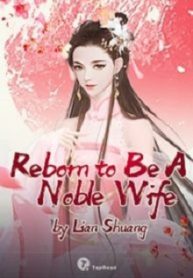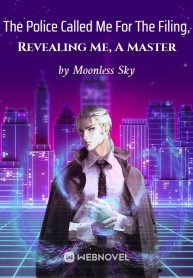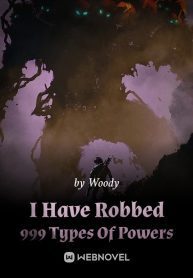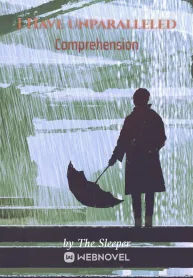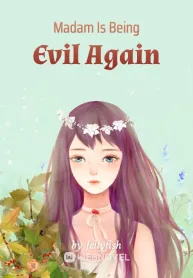This was a very simple question, and no matter where it appeared in the corners of any magazine or book in this library, it wouldn’t catch people’s attention.
But it happened to be here.
Countless possibilities flashed through Xing Conglian’s mind, such as some unlucky kid casually writing a sentence, and they happened to stumble upon it by accident. But in reality, he was very clear that those so-called other possibilities weren’t valid.
From the moment Lin Chen received the text message, to their gradual guidance here, searching the shelves, finding the hidden periodical, and seeing this sentence, all indicated that someone deliberately wrote this question here, and that person was certain that Lin Chen would see it.
This was obviously related to Lin Chen’s past.
After roughly figuring out what was going on, Xing Conglian was no longer worried.
“What is this?” He calmly spread the book open, turned it around, and faced it towards Lin Chen. Then, he pointed to the question about choice in the seam of the book page, as if asking a very ordinary question.
“This is a question, and also an answer.”
Lin Chen replied still with his distinctive style. Xing Conglian didn’t feel like he was hiding anything.
“What kind of question is it?” Xing Conglian looked straight into his eyes and asked.
“The last time I was forced to answer this question was when I met Feng Peilin on the Taiqian Bridge last year.” Lin Chen paused and spoke clearly and systematically. “He asked on behalf of someone else: In this world, in the confrontation between the infinitely small and the infinitely large, which side would I choose to stand on?”
“Why is it so literary?” When he heard the name “Feng Peilin”, Xing Conglian’s brows slightly furrowed. Although this name was an expected one, it completely represented a part of Lin Chen’s past that he had never touched before.
Now, this part of the past suddenly jumped out without warning. Lin Chen straightened his back, his gaze calm and cool, clearly ready to uncover the scar.
Xing Conglian felt a bit reluctant, steadied his breath, and continued to ask, “Infinitely small, infinitely large—what do they refer to? And what does the so-called ‘choice’ mean?”
“I’m not entirely sure either. ‘Infinitely small’ refers to individual consciousness, ‘infinitely large’ probably refers to the entire social morality and legal system. Translated, Feng Peilin’s entire question was asking me if they were going to be anti-social and if I would help them. But don’t interpret this as a request; it was a boast.” Lin Chen rubbed the table with his finger somewhat irritably. “It’s really annoying,” he emphasized.
At this moment, Lin Chen finally had a living presence. He wasn’t sad; he simply detested these things.
“Since we’ve brought up this matter, there’s a question I must ask. Why did you leave back then?”
“Because Feng Peilin died,” Lin Chen answered. “In fact, I’m very clear that his last step was to kill someone and then commit suicide. It shows that he couldn’t swim at all, and there was no reason for him to survive after falling into the river. I designed this situation, luring him to commit suicide with my own actions, but I didn’t tell you about it. It didn’t comply with legal procedures, and morally, it was flawed. To be honest, I feel guilty about it, so I chose to leave.”
“So, does that mean you didn’t like me at that time?” Xing Conglian suddenly asked. “It wasn’t love at first sight?”
“Why are you becoming more like Wang Chao, always going off-topic?”
“This is a very important question, more important than those shitty matters.”
“At that time, I just thought you were handsome—the type I liked—but I didn’t see your inner beauty.”
Lin Chen answered sincerely, leaving Xing Conglian unsure whether to laugh or cry.
“What about you?” Lin Chen also paused and asked him.
“At that time, I thought you had inner beauty, a kind of mysterious aura that attracted me. But now…” Xing Conglian gestured to Lin Chen, who instinctively leaned closer. Under the warm sunlight, Xing Conglian kissed Lin Chen’s ear and said, “Now, I think you’re handsome.”
Lin Chen’s face clearly blushed, even though they had already done everything together. Yet, Lin Chen could still be shy in some unexpected moments. Xing Conglian enjoyed this moment.
Perhaps after teasing Lin Chen, the atmosphere became less heavy, and under the warm sun, it felt somewhat drowsy.
He closed the book, and the question and answer had come to the most crucial moment. He spoke seriously, “Since Feng Peilin is already dead, then who left this message here? Who sent you the text message and led you to see it?”
“Xing Conglian…” Lin Chen drawled, gazing at him.
“Here.”
“You really haven’t seen the file from that year,” Lin Chen said. “I mean, the thing that Huang Ze held a grudge about—the incident where I killed his sister.”
“Although I haven’t seen the file, I have a general idea of what happened when Huang Ze first came to Hongjing looking for trouble.” Xing Conglian honestly shifted the blame. “It was Fu Hao who told me.”
Lin Chen was taken aback, clearly not expecting this. “You knew the whole story from the beginning?”
“No, Fu Hao only said that it was a trolley problem*. You were forced to make a choice between four people and sixteen people, but he didn’t tell me what kind of choice you made.”
*See chapter 15 for the explanation.
“He’s really troublesome,” Lin Chen said, lowering his head, looking gloomy. He seemed to have no energy for any teasing. But that was Lin Chen. After a while, he seemed to have made up his mind. He raised his head, looked directly into Xing Conglian’s eyes, and asked firmly, “So, do you want to hear my version?”
……
To hear the story, alcohol was needed—that was the agreement Lin Chen made with him initially.
Xing Conglian rushed downstairs, bought two cans of Yongchuan beer from the convenience store, and then returned. This time, Lin Chen didn’t run away again. Instead, he leisurely placed two chairs facing the window and propped his feet up on the windowsill. On his knee lay the 1975 edition of <American Psychologist> they had just found.
As Lin Chen flipped through the collection, his back in a white shirt looked like the kind of senior most popular among girls on campus.
Xing Conglian felt at ease and didn’t mind whatever story he was about to hear.
He walked over, used the beer can to lightly touch Lin Chen’s face, and Lin Chen kissed the back of his hand. Then, he reached out to take the beer, opened the can with a “pop”, and took a big sip.
Xing Conglian didn’t say anything and just sat down on the nearby stool. He hooked his arm around Lin Chen’s back and, like Lin Chen, propped his feet up on the windowsill.
After drinking some beer, Lin Chen’s cheeks were slightly flushed, but he wasn’t drunk.
“Fu Hao told you about the trolley problem.” Lin Chen asked, “How did he describe it specifically?”
“He said there were 20 children playing on the tracks for some reason. Four people suggested to the other 16 that they should go to the other side of the tracks because a train was coming on the path they were on. But the remaining 16 children didn’t listen and chose to stay where they were. At that moment, a train passed and crashed into those 16 people. You were the one who had the chance to pull the lever to change the direction of the train and sacrifice the few to save the majority.” Xing Conglian summarized concisely. “Fu Hao probably presented the problem like this, but he didn’t tell me the outcome.”
“Do you want to know the result?” Lin Chen asked.
“I think the result doesn’t matter,” Xing Conglian answered.
Lin Chen didn’t expect him to say that and looked at him strangely, but then almost whispered to himself, “How can the result not matter?”
“Because this is a dilemma with almost no correct answer.” Xing Conglian took a sip of beer. “I remember this should be an ethical problem?”
“In fact, it is the most famous thought experiment in the field of moral philosophy, first proposed by Philippa Foot* in 1967. It was aimed at critiquing utilitarianism and attacking Kant’s moral duty theory. The original version was not like this, and now this experiment has been transformed into various versions, but it still holds profound significance.”
*English Philosopher and one of the founders of contemporary virtue ethics, who was inspired by the ethics of Aristotle.
“Philosophers always play with fire; this is a very dangerous question,” Xing Conglian said. “In this problem, it explores the duty and responsibility of the trolley operator, as well as the value of life between the majority and the minority. However, once the debate reaches its end, it’s easy to fall into moral nihilism. Both the proponents and opponents of pulling the lever will be stubborn, insisting that their viewpoint is inevitably correct. At some moment during the confrontation, everyone suddenly realizes that there is no such thing as morality or immorality, right or wrong.”
“Your perspectives are always so unique.” Lin Chen raised his beer can and lightly touched it against Xing Conglian’s. “I want to hear more details from you.”
“Choices represent different value systems. Taking the lever as an example, if the trolley operator pulls the lever and directs the train to collide with fewer people to save the majority, then he indirectly acknowledges the value system that considers the lives of the majority more important than those of the minority. Moreover, in modern society, this action is equivalent to violating social rules, depriving others of their right to life—in other words, killing.”
“What if he doesn’t make any choice?” Lin Chen asked.
“Not making a choice is also a choice,” Xing Conglian replied. “He believes he must abide by the social rules and cannot save some people’s lives by depriving others of theirs. In this choice, there is also a trap. He is essentially admitting that, after following social rules, the lives of the minority are more worth protecting than those of the majority. If each person’s life is of infinite value, unable to be measured by a cumulative quantity, then why, after adding social rules, does this become measurable?”
“But it sounds like the latter choice is better?” Lin Chen smiled, with a peaceful expression. “After all, if we generalize it, rules and justice are superior, and rules maintain the normal operation of human civilization.”
Xing Conglian paused, not expecting Lin Chen to respond like this. “If that’s really the inference, then the former choice—upholding the interests of the vast majority of humanity and ensuring human survival—happens to be the reason for establishing social rules and maintaining social normalcy in the latter choice.” He felt that the questioner was being unreasonable. “So, in essence, both choices are forms of moral utilitarianism—the former is situational utilitarianism, and the latter is rule utilitarianism. They lead to the same conclusion, so this kind of questioning is meaningless.”
“No, I still think it is full of significance.” Lin Chen unusually opposed his viewpoint. He took a sip of the beer, slightly tipsy, and said, “Philosophers design such questions to contemplate human past experiences and future fate, through speculation to explore human’s intrinsic moral thinking and external social systems. This itself is an incredibly elegant thing.” He spoke with determination and raised the plain green beer can towards the sun as if he were paying tribute to someone from afar.
At this moment, the sun’s warmth was no longer as scorching as at noon; it seemed gentle and affectionate.
Outside the window, the trees were verdant, and everything was green, creating a pleasant view.
Xing Conglian raised his beer can and took a big gulp, feeling that within the questions and answers, Lin Chen had led him to the core of the issue. However, he found contemplating and answering such hypothetical questions to be irritating and difficult.
But Lin Chen had genuinely experienced such a moral dilemma, and yet, such an experience didn’t fundamentally destroy him. He remained steadfast in his beliefs and had great respect for the world.
As Xing Conglian looked at Lin Chen’s profile while he toasted, he couldn’t help but reach out and touch his face.
Lin Chen turned his head, with a hint of surprise in his expression.
“Hey, what’s wrong?” Lin Chen used his thumb to wipe his nose as he asked.
“So, Lin Chen, what choice did you make at that time?”
Kinky Thoughts:
There are a lot of philosophical ideas discussed in this chapter. Kantianism, named after Immanuel Kant, is the theory that in order to act morally, people must act from duty. He further argues that it’s not the consequences of the actions that make them right or wrong, but the motives of the person who carries it out.
You can read more about it, and how deontology was formed by going to the Wikipedia. Modern deontology explains that the morality of an action is based on whether the action itself is right or wrong under a series of rules and principles rather than the consequences of the action.
The Trolley Problem presents a criticism in that whatever decision the trolley operator makes, it’s hard to say whether that decision was “morally correct”.
